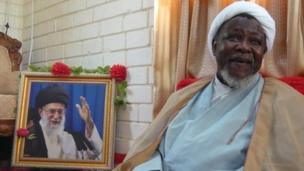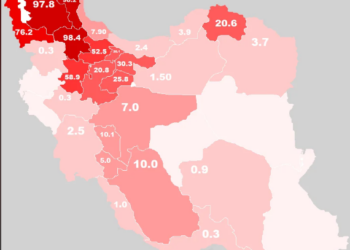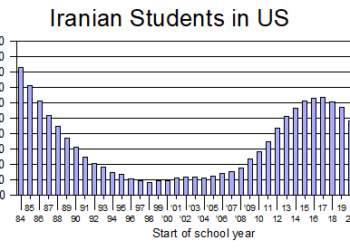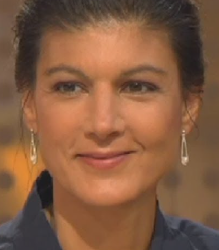August 9, 2019

The Nigerian government has outlawed a Shiite political party that has long been backed by Iran and been in numerous violent confrontations with the government.
One key question for years has been how much of the violence has been initiated by the government rather than by the Islamic Movement of Nigeria (IMN).
Most observers blame most of the violence on the government. “The Nigerian police’s apparent rush to use firearms against Shia movement protesters is unlawful and counterproductive,” said Anietie Ewang, Nigeria researcher at Human Rights Watch, in a statement July 24. “The authorities should bring an end to their violent crackdown on the Shia Islamic Movement in Nigeria, and investigate the excessive use of force by the police,” she added.
In addition to being attacked by government forces, IMN has also been physically attacked by the violent rebel group, Boko Haram, a much larger organization.
Nigeria is roughly half Christian (in the South) and half Muslim (in the North). The Muslim half is almost entirely Sunni. The IMN was founded shortly after the Iranian revolution by Ibrahim Zakzaky, who studied theology in Iran and took his inspiration from Ayatollah Khomeini. Whether he took any funds or direction from the Islamic Republic remains open.
But Zakzaky’s efforts to promote his movement put him into conflict with the Sunni clergy, which is theologically mostly aligned with Saudi Arabia and demanded help from the government in repressing the IMN. (The Christian South has largely ignored the Zakzaky issue.)
The result was frequent street violence. Zakzaky was arrested 3-1/2 years ago and remains in custody. The Iranian state media has always strongly supported him and has mounted an even more vocal campaign in the last month demanding his release.
Nigeria’s presidency announced July 28 that the government was now banning the Shiite group after a spate of deadly clashes at demonstrations in Abuja, the national capital, demanding Zakzaky’s release.
At least six protesters, a trainee journalist and a senior police officer were killed July 29 during the latest clashes.
Punch newspaper reported the government had secured a court order allowing it to prohibit the group’s activities as “terrorism and illegality.”
In a statement, the Presidency said, “Proscription of Islamic Movement of Nigeria (IMN) has nothing to do with banning the larger numbers of peaceful and law abiding Shiites in the country from practicing their religion, instead it was to discourage wanton violence, murder and willful destruction of public and private property.”
The statement said, “The banned organization was taken over by extremists who didn’t believe in peaceful protests and instead employed violence and arson, driving fear and undermining the rights of others and constituted authority.”
“The government had to act before the situation goes out of control,” it said.
Zakzaky was detained in December 2015 after violence during a religious procession. Rights groups say some 350 mostly unarmed Shiite marchers were killed by the Nigerian army at that time.
In recent months there have been almost daily marches by the IMN in the capital as concerns rise over Zakzaky’s health.
The IMN has condemned the move to ban it as a “dangerous development” and insisted it would push on with its protests until its leader was freed.
Zakzaky and his wife, Zeenah Ibrahim, have been in custody despite the federal high court ordering his release in 2016. The government refused to free him and filed fresh criminal charges, including homicide, which is punishable by death.
The membership of the IMN is unknown. The group appeared to fade in the 1990s, but it re-emerged in 2008 with the assassinations of several Sunni prayer leaders who had preached loudly against the movement. That is when the current violent period began.
GlobalSecurity.org says, “The IMN’s appeal, in part, resulted from al-Zakzaky’s capacity to effectively discredit other Islamic reformist organizations for aligning themselves too closely with what al-Zakzaky deems a corrupt, un-Islamic government. The youth who identify with the IMN also do so for the sense of identity and community (and economic advantage) such associations engender.
“Overall, the IMN’s allure has not been a function of its association with Shi’ite doctrine. Its popularity emanates from al-Zakzaky’s capacity to present himself as a voice for Islam in Nigeria by articulating the concerns of northern Nigeria’s disenfranchised and unemployed youth, and by himself maintaining the appearance of incorruptibility and righteousness.
“The Islamic Movement of Nigeria reportedly mobilized more than one million people for Shia religious events and 50,000 people for political rallies where Khomeini and his successor, Ali Khamenehi, and Hezbollah leader Hassan Nasrallah are revered, while flags of the ‘Great Satan [the United States]’ and Israel are burned.”



















